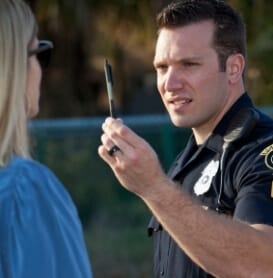

By: Lakeview Health
Which One Needs the Sobriety Test?
The Americans with Disabilities Act lets employers make sure that alcohol or illegal drug use stays out of the workplace. The ADA also protects recovering alcoholics and drug users from discrimination. But a recent lawsuit is testing the power and protection of the ADA. Will the law stand behind a cop, an alcoholic, whom the police department fired for driving drunk?
The Story
In 2011, detective Jason Servo drove an unmarked police car to a firearms training session. Afterward, he had dinner and drinks with other officers. When he was back behind the wheel, Servo drove his car into a ditch. The police responded and requested that he take the breathalyzer and field sobriety tests. Servo refused.
The deputy who arrested Servo said that out of 15 years of investigating drunk driving incidents, Servo was in the top ten of most intoxicated people. Two months later, Servo pleaded guilty to drunk driving and completed a diversion program. The court cleared him of his DUI. Servo also made the decision to enter an alcohol rehab center, where the staff diagnosed him as an alcoholic.
The Lawsuit
Servo recently filed a $6 million lawsuit against the city of Gresham (his former employer) and its police chief, among others. The suit alleged that Servo was dealing with alcoholism (a disability under the ADA) and was wrongfully fired.
The lawsuit also claimed that Servo was not given due process, nor represented by the police union. Servo believed that the police chief used the incident as an excuse to fire him, when he was just trying to save money.
The Act
According to the Equal Employment Opportunity Commission, which supports the intentions of the ADA, Servo was justly fired. The EEOC believes that if a federal police officer is involved in a drunk driving accident, his or her behavior would be grounds for termination. It doesn’t matter if the officer is getting help for alcoholism – the ADA provides for reasonable accommodation for disability, but not to the point of putting other people at risk.
However, in relation to Servo’s case, a major problem with the EEOC’s view is that a police officer would have to drive drunk while on duty. Servo was off-duty. Servo is working as a private investigator. He is also in the process of reinstating his police certification while awaiting the outcome of his lawsuit. The ADA has helped many addicts in recovery get workplace accommodation, with job restructuring or adapting schedules. However, someone actively using drugs or alcohol, with the potential to harm others and in conflict with workplace rules about substance use, would not be covered.





